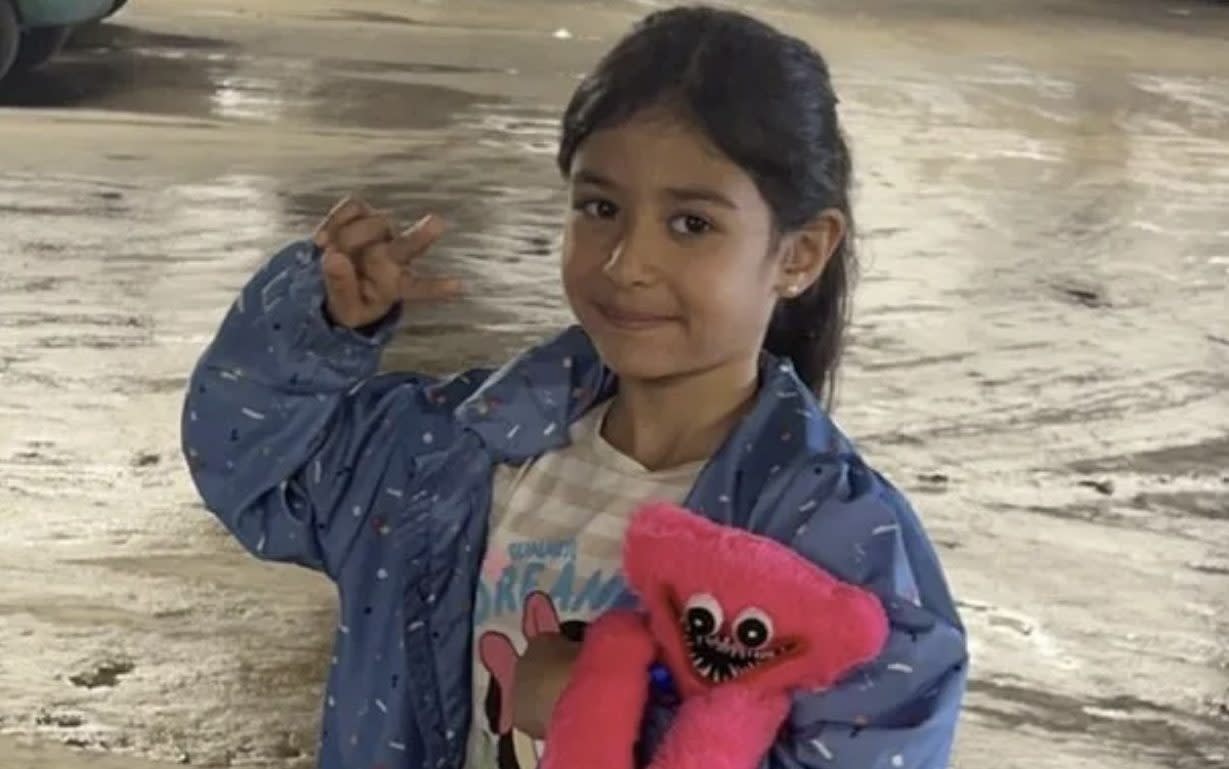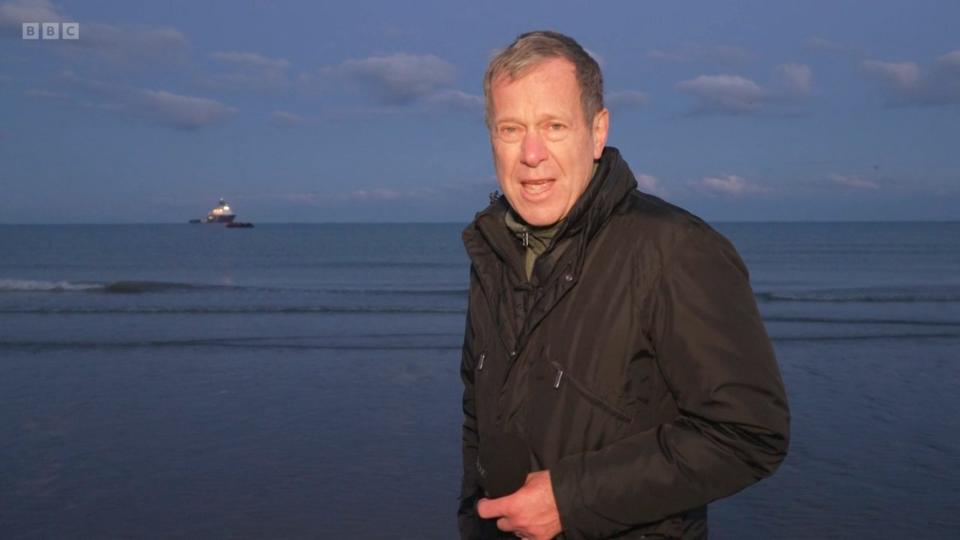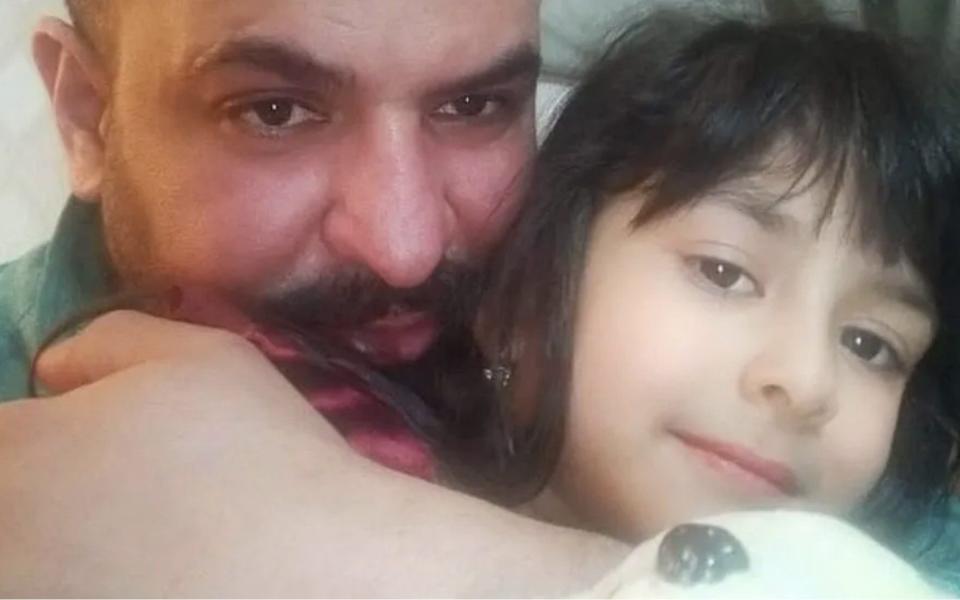How a child’s death in the Channel raises uncomfortable questions for the BBC and French police

In the pale blue light of a full moon before dawn, a French police spotter plane circled the beaches of Boulogne on April 23 while their colleagues on the ground lay in wait.
Their targets were the cross-Channel people smugglers who profit from human misery, and by their side in the air and on land were BBC camera crews who had been invited to watch the operation to stop migrant boats unfold.
What happened next was a tragedy that would make headlines around Europe, as five people, including a seven-year-old girl, lost their lives within sight of the shore after setting out for England on an inflatable dinghy.
Hopelessly overladen, with 112 people crammed literally on top of each other, the boat became a floating crime scene after the French police failed to prevent it taking to the sea.
Astonishing as it may seem, they even allowed the flimsy vessel to carry on towards Dover after belatedly intercepting the boat and removing the bodies.
Fresh details of what happened during that chaotic and lethal hour either side of daybreak have now come to light, and it leaves the French authorities, and perhaps even the BBC, facing uncomfortable questions about their behaviour.
The first sign that police were in for a busy morning came from the sky, where thermal imaging cameras on board the light aircraft flown by the French border police saw large numbers of people gathered in the dunes at Wimereux, just north of Boulogne-sur-Mer.
Squeezed into the back of the aeroplane was a BBC cameraman, filming the airborne search, while their colleague Andrew Harding, the BBC’s Paris correspondent, sat waiting on rocks at the edge of the dunes for any updates.

At around 6am Harding and the police officers on the Plage des Allemands beach saw in the half-light that dozens of migrants – predominantly young men – were pushing a large dinghy with inflatable sides across the smooth sand towards the water.
Harding reported at the time: “As we got closer to the water and to the migrants it became clear another group was also joining them and they were converging on the same spot and on the same inflatable boat – and that’s where the trouble really started.”
BBC footage of the incident showed some of the men wielding metal bars and sticks, and using firecrackers as they fought a running battle with the police, who responded with tear gas.
In recent weeks, officers have been using knives to slash inflatable boats before they can get out to sea, so the smugglers have responded by arming themselves and becoming much more violent.
Perhaps because their own vessel had been disabled, dozens of men clambered aboard the dinghy as it reached the water’s edge, with lethal consequences.
Among those already on the boat were Ahmed Alhashimi, 41, his wife Nour AlSaeed, their daughters Rahaf, 13, and Sara, seven, and son Hussam, eight.
Harding said: “I could see a child, briefly clinging onto a man’s shoulders, then disappearing. Then I heard someone shout for help.”
He now believes the child was Sara and the man shouting for help Mr Alhashimi, who had taken Sara off his shoulders to help Rahaf get aboard.
The Iraqi asylum seeker told the BBC: “People kept piling on, they didn’t care if they were stepping on a child, or someone’s head. People started to suffocate. Sara said, ‘Help me, Dad’, but I couldn’t reach her. There were people standing on top of us and Sara disappeared below me.”
He said he begged people to move out of the way, even punching one young Sudanese man. “I just wanted him to move so I could pull my baby up,” he said.

BBC footage showed the boat setting out to sea while the French police looked on, with around half a dozen migrants who had not managed to make it on board standing waist deep in the water, some wearing orange life jackets. They later trudged back to shore, where one appeared to be arrested.
Among those who decided to abandon the crossing was 16-year-old ‘Marcus’ – not his real name – from South Sudan, who said: “I just wanted to save myself – 30 or 40 guys were trying to force themselves on the boat because they did not pay the money.”
Once the boat was afloat the French police told the BBC there was nothing more they could do.
Watching the vessel as it drifted perhaps 200 metres out, Harding reported at the time: “The migrants who did get onto that boat are in trouble. Some of them are still trying to clamber on board, they haven’t got under way yet so they may be struggling to get their motor started. It’s been a very dramatic few minutes.”
What he did not know at the time was that the boat was nearing a sandbank, where at 6.23am its engine stopped and two people fell overboard. The French coastguard ordered the rescue and assistance tug Abeille Normandie and another coastguard vessel, Minck, to intervene.
Mr Alhashimi said: “Finally when the rescue boat came they started to pull people out, to pull out the dead. Then I saw Sara. She was in the corner. Her face was blue. She wasn’t breathing.”
By now two rigid inflatable boats (Ribs) had also been launched by the coastguard, together with a lifeboat from Boulogne.
The Ribs were used to take the unconscious migrants back to the beach, where all five – three men, a woman and Sara – were pronounced dead at around 7am following unsuccessful attempts to resuscitate them.
Another 49 people were rescued from the floundering vessel, but not until 9am, according to the French authorities.
Jacques Billant, the Prefect of the Pas-de-Calais, would later describe sending a boat to sea with 112 people on board as “an act of murder”. Similar vessels usually carry no more than 50 people.
But instead of seizing the boat as a crime scene, the French authorities allowed it to continue its journey to England with 58 people on board.
The French Navy escorted the boat, its engine having been restarted, across the Channel. It arrived in Dover at around midday, having been intercepted by the UK’s border force en route.
Meanwhile, as undertakers arrived at Wimereux to remove the bodies, the French authorities faced a series of questions about their handling of the tragedy.
Why did they wait for the chronically overloaded boat to get into difficulty before it was intercepted? Why was it allowed to carry on to England when it was only a few hundred yards from the French shore when it was eventually stopped?
There are also uncomfortable questions about the presence of the BBC on the morning in question, which any media organisation would have to ponder if its reporters had witnessed such a tragedy.
Did the presence of BBC cameras alter the behaviour or tactics of the French authorities in any way? Were the French trying to put on a show in order to prove that they were being tough on migrants, or might the opposite have been true – that they pulled their punches for fear of being accused of heavy-handedness?
The BBC must also consider whether the smugglers themselves might have behaved differently because of cameras being present: they might, for example, have been desperate to best the police, given that footage of boats being captured might be bad for business.
None of this will help Sara, who was born in Belgium, raised in Scandinavia and had never been to Iraq. She was facing deportation with her family after years of unsuccessful attempts to claim asylum in the European Union, according to Mr Alhashimi, who left his home country in 2009. The family were making their fourth attempt to cross the Channel.
He said: “I could not protect her. I will never forgive myself. But the sea was the only choice I had.”
The Telegraph has approached the BBC and French authorities for comment. Neither had replied by the time of publication.

 Yahoo News
Yahoo News 
